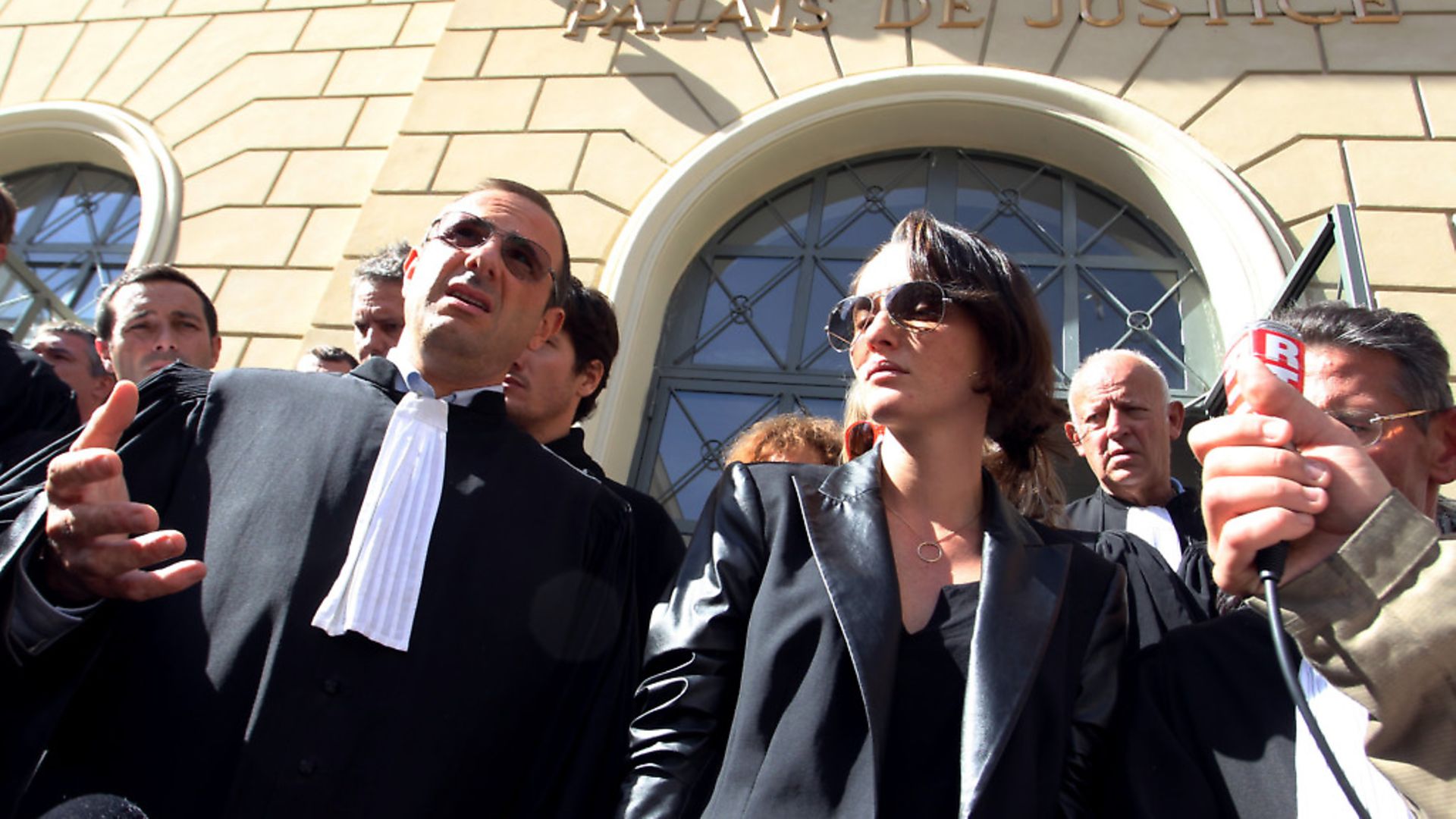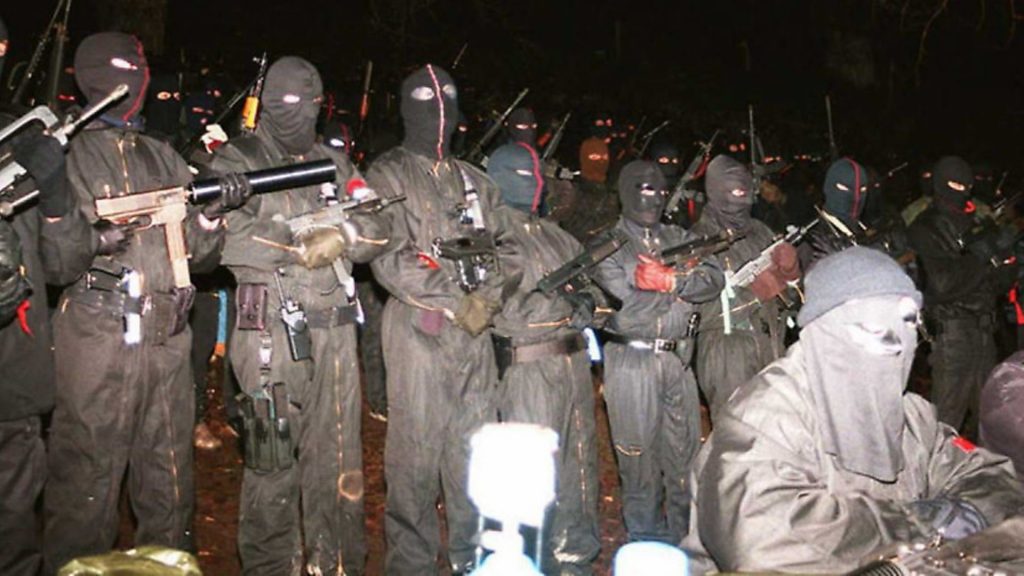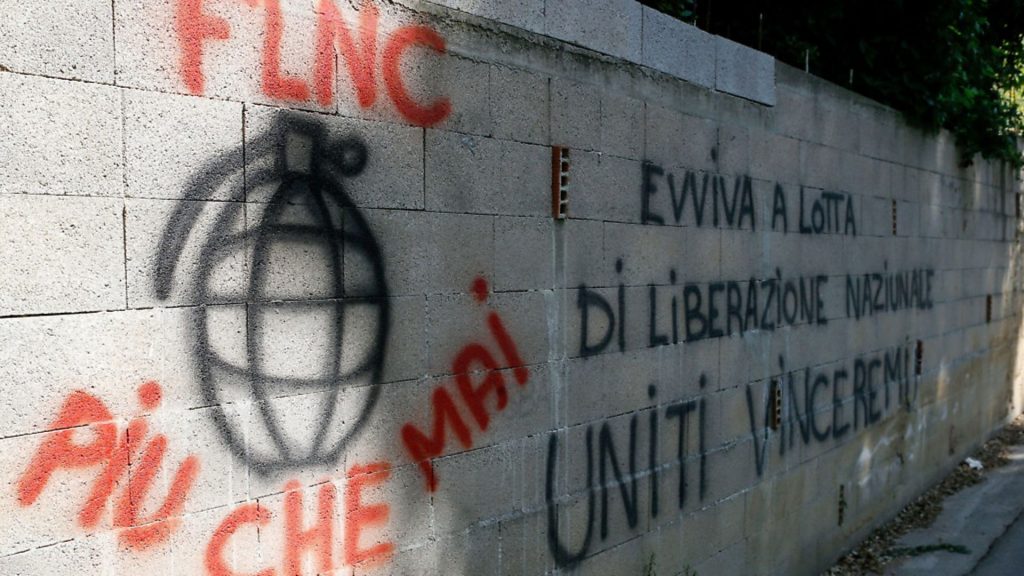
Corsica, the most beautiful island in the Mediterranean, also boasts Europe’s highest murder rate per capita. Stan Abbott explores its dark side.

‘The owner assembled the land for his business by murdering his cousins one by one,’ the young Russian waitress calmly told me. She tossed this incendiary remark into our conversation without so much as the kind of look that might acknowledge that her grenade might shock me; nor even a wry smile.
I had just returned to the French mainland after a week immersed in the extraordinary beauty of Corsica and the warmth of its people.
‘My last job was on Corsica,’ the young woman had said, going on to tell me how she worked in a very exclusive villa complex with full hotel service and a guest list that included Hollywood stars.
I dismissed her remark at the time as hearsay or hyperbole. But Corsica is a place that exists in two parallel universes, and the more I get to know about one of these, the more her words acquire the ring of possible truth, even likelihood.

The acceptable face of Corsica is a rare natural beauty, towering and inaccessible mountains, drained by endless ravines flushed by ice-cold waters, tumbling down to turquoise seas, in turn fringed by endless bays of golden sand.
Its people are always welcoming, whether in a little saucisse-bedecked roadside café perched atop a rugged col, or in an impromptu beach café. Dramatic castles and fortress towns hint at the island’s complex history of conquest and colony amid a landscape all but devoid of evidence of any big-money endeavour to exploit any of the island’s seemingly endless attributes.
I meet a man, whom (for reasons that will become apparent) I shall call simply Pierre Le Brun. A Parisian who lived and worked on the island for many years, he tells me how he saw both his hotel and his car torched, on various occasions, yet still finds himself drawn back. ‘It’s a very frightening place to work but it’s a wonderful place to go on holiday,’ he says, with a wistful look.
The truth of his assessment lies in the fact that the ‘unacceptable face’ of Corsica exists while scarcely ever colliding with the tourist idyll.
A roll call of invading colonists that dates back to the Phoenicians – via Romans, Vandals, Byzantines, Saracens, Pisans, Genoans, Italians, Germans to name but some – has somehow produced a society characterised today by the lingering rules of the vendetta, a disdain for subservience of any kind, corruption and complicity in the structures of the state, the long armed struggle for independence and, latterly, organised crime, often casually labelled ‘the mafia’.
Corsica today boasts the highest per capita murder rate in Europe, combined with a near-zero detection and conviction rate that would probably put Mexico to shame.
Building development seems to be controlled not so much by permits and legal frameworks as by whether shadowy figures will choose to blow up a new building once it’s complete.
An English friend who worked there for a time in the 1980s told me how a German family was building a large home by the coast. ‘Once the structure was complete, one day there was a huge bang and it all disappeared in a cloud of dust.’
The curious thing is that it is the fault line between Corsica’s two universes that ensures that the island remains the unspoiled jewel of the Mediterranean. Put bluntly, the Med’s fourth largest island is not a place in which mainstream global holiday companies are likely to invest.
It is this, plus the legacy of the long armed separatist struggle, that has preserved the island’s pristine beauty for the enjoyment of three million or so visitors a year. The Fronte di Liberazione Naziunale di a Corsica, or FLNC, only laid down its arms in 2014, after nearly four decades of bombings and murders, the deterrent effect of which surely meant Corsica did not develop in the same way as Mallorca, Ibiza or Rhodes.
From time to time, the French government will issue a statement to the effect that it’s finally going to get to grips with violent crime by the island’s criminal classes. This is usually in response to some particularly unpleasant assassination and, equally usually, ultimately proves to be no more than words.
One such occasion was in 2012, when prime minister Jean-Marc Ayrault announced a crackdown after the shooting in broad daylight of leading Corsican lawyer, Antoine Sollacaro – the 15th such assassination that year.
Xavier Bonhomme, the state prosecutor in the island’s capital, Ajaccio, commented at the time in an interview with news channel France 24: ‘There are many murders in Corsica. Too many. But it must be understood that nearly all of these are directly related to organised crime, and are almost always over the settling of accounts and disputes over territorial expansion.
‘It’s very rare to have the husband-kills-wife type of murder in Corsica, as is sadly more common in other jurisdictions I’ve worked in, such as Marseille and Paris.’
He continued: ‘Everyone knows everyone, and people are very unwilling to testify in court. In France we have a system of giving evidence anonymously. It works well on the mainland, but not at all here in Corsica. People don’t trust the police or the courts, and you can’t force people to testify if they don’t want to.’
Three years later, Bonhomme left Corsica for a four-year stint in Guadeloupe. He is now public prosecutor in Nice and the archetypal merry-go-round of the French civil service may not sit well with tackling the deep-rooted issues in Corsica.
In the absence of a concerted central governmental response, it can be left to the islanders themselves to challenge the criminal status quo.
In September last year, the brutal slaughter of Massimu Susini – killed by a single bullet from a rifle – prompted the formation of citizens’ groups demanding his killers be brought to justice.
As a 36-year-old nationalist, restaurateur and environmental activist, Susini did not fit the mould of the ‘traditional’ shooting victims – more usually local mayors or prominent business people. ‘There are people here who know but don’t want to say,’ his father, François, told a New York Times reporter at the time.
The French state’s seeming paralysis when it comes to tracking down and punishing killers in Corsica stems not just from this fear, but from a deep distrust of France, still seen as the colonial power after two centuries of ‘occupation’.
The island enjoys a degree of autonomy, with its own directly elected council, which has powers in culture, education, environment, planning, tourism, transport, vocational training and energy. Its language is recognised as a regional tongue by the EU.
Once the poorest region of metropolitan France, there’s been a degree of catch-up since the turn of the century, with GDP per capita growing by a third in the first decade to 2010, alongside steady population growth. It now has GDP per capita equivalent to 90% of the EU 27 average.
However, Corsica remains the least densely populated French territory after French Guiana. Although direct comparisons are difficult, there is evidence that the country’s distant territoires d’outre-mer receive more financial support, not only from the French state, but also from the EU.
Against this backdrop, Anna-Maria Sollacaro, daughter of the murdered lawyer, Antoine Sollacaro, says people like her father have ‘died twice’ – not only physically, but ‘in legal terms’ too, as they fade from memory with no judicial response. She questions how people can be murdered in full view of CCTV cameras and yet no prosecution be ever brought – she cannot be sure whether this is down to incompetence or complicity.
She and her brother Paul chose to carry on where their father left off in seeking to bring justice to the island. ‘I don’t fear for my life,’ she says. ‘I am doing this job because he gave me the passion for it – I want to fight for justice.’
Her father was a nationalist, says Anna-Maria, but with a vein of romanticism. ‘He defended his island, its culture, its coastline. His was not a nationalism closed to others. We weren’t obliged to speak Corsican – he raised us as free spirits.’
Anna-Maria’s willingness to speak out is in marked contrast to the silence that prevails and stifles comment on even quite mundane matters of public interest at all levels of society.
Corsica came through the financial problems of 2007-2009 relatively well, thanks in part to the fact that it has little manufacturing industry and relies heavily on tourism.
And besides its extraordinary natural beauty (nearly half the island is protected landscape) it is the deep-rooted indigenous basis of the tourism product, built upon traditional architecture and local food produce, that is so appealing.
You might expect these Corsican entrepreneurs to be at the forefront of promoting their own businesses, but they are as reticent as anyone to attach their name to any statement, lest it might somehow lead to repercussions.
On my most recent visit, I stayed in a beautiful hillside complex of attractive little cottages built in the traditional Corsican style, where my wife and I were greeted with typically generous Corsican hospitality. The owner spoke to me on condition that I didn’t mention her name. ‘Our family has lived on Corsica for several generations and we established our villa complex because of our passion for preserving the island’s traditional architecture and building skills,’ she said.
‘We also wanted to conserve the environment at the natural beauty of the island by offering a tranquil, traditional holiday location, in perfect harmony with nature.
‘Some years ago, Corsica may have suffered from an image problem, because of ‘the mafia’, but that’s now all in the past. OK, the old mafia stories were down to the internal squabbles of wider banditry and absolutely did not affect visitors. The FLNC also often hit the headlines and so for some years contributed to that bad reputation.
‘Yes, these stories of banditry are part of our history and the strong Corsican character, but our island has always been a truly peaceful haven for our visitors, who can enjoy the island’s charm and beauty in complete security.’
Pierre Le Brun puts it like this: ‘The whole of Corsica has a morality that is different from everywhere – everybody is involved to a greater or lesser extent in crime, whether it’s just cheating the French state or something more serious. The reason is that Corsica has never been allowed to develop into a civilisation running its own affairs – it has always been dominated by outsiders – Genoese, North Africans, even, for a short time after the Revolution, the British.
‘Then, under the British, they had an incredibly developed democracy, under Pasquale Paoli.’ Indeed, Paoli is fondly remembered in his statue, dominating the main square in the mountain town of Corte, the only one of the various historic ‘capitals’ on the island chosen by the Corsicans themselves.
‘It lasted a short time until the French came in,’ says Le Brun. ‘It’s never been allowed to run its own affairs so it’s never been allowed to develop into a proper civilised state – it’s always been every man for himself.
‘I remember a newspaper headline saying that Corsica’s salaries were the lowest of any département in France. And the next day’s headline said that Corsicans saved more than anyone else.
‘That’s the perfect proof that there is a hell of a lot of cash but a lot of dodgy, dodgy stuff – a lot of drugs etcetera, all tied up with organised crime in the south of France.
‘They get away with it because there are lots of Corsicans in the judiciary and the civil service. They just lose any documents so that, if you have a Corsican name, you will not get prosecuted.’
Pierre points me towards the books of Dorothy Carrington, who travelled alone in Corsica and wrote two acclaimed books on an island that seemed to teeter on the edge of civilisation, despite its rich historical roots. Her story of being taken to a Neolithic stone circle lying hidden in the undergrowth is both an apt metaphor and an enticing example of her fine writing.
Travelling in quest of the island’s rich – but largely ignored by the outside world – cultural heritage Carrington writes of tiny bars, heavy with the smell of smoked meat, where ‘the proprietors were courteous, but unservile, uninterested, so it seemed, until they refilled one’s glass, unasked: ‘This one on the house, for the road. Until next time!’ Such is the undemonstrative friendship of the Corsican country people’. So taken was she by Corsica that she moved there in 1970 and died on the island, aged 91, in 2002, having received an honorary doctorate from the University of Corscia in 1991 and having been made Chevalier de l’Ordre des Arts et des Lettres in 1986.
Today you can actually visit those Neolithic remains, but, as Pierre Le Brun puts it: ‘It’s extraordinary how little of it has been spoiled. I love to come back every year, but I keep my head down – I don’t want a bullet in me.’
Today, bullet holes in French road signs and occasional scrawled graffiti are the only reminders of the violence of the FLNC, and a cynic might wonder why the French state should worry too much about the fate of 300,000 people who don’t like it and are geographically closer to Italy.
Perhaps the reason why it should worry is that Provence-Alpes Martimes-Côte d’Azur – with 0.3 murders per 10,000 people in 2018 – now runs Corsica’s 0.34 a close second. The link with organised crime across both regions is self-evident.
For Xavier Bonhomme, the answer lies in providing more state resources to investigate organised crime: ‘If you look around the streets of Ajaccio, there are too many luxury cars for the relatively small official financial output of the island.
‘These gangsters, so far relatively untouchable, are making large investments in property both in Corsica and on the mainland. Investigations so far have been too limited to the crimes themselves, and not on the source of the vast amounts of dirty cash they are handling.
‘This is how the French state can play a much bigger role in helping to solve Corsica’s problems – not by putting more policemen on the streets, but by giving resources so that the money side of the criminal activity can be properly investigated.’
It is a big ask, but if the problems associated with the island’s uglier side can finally be addressed, it will allow a shadow to lift from its generous, warm and welcoming people. After all, it is they who have always been the victims of Corsica’s bloody history – not just those who have suffered directly from the violence, crime and (over the centuries) violent conquest – but all who have lived in such a beautiful, albeit tainted land.









